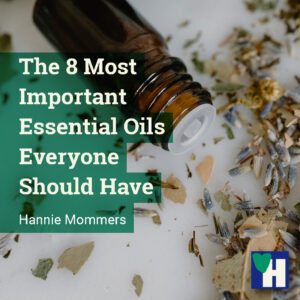
Search for “most important essential oils” or “must-have essential oils” and you’ll get several lists. Some oils are on all the lists, others are personal preferences. The list in this article is my personal preference, based on what oils help me best.
When I began to use essential oils I bought a starter kit because I didn’t know anything about the oils. I supposed a starter kit would have all the right essential oils. But in the end, there are just a few types of essential oils that I kept on using once a bottle was empty.
Never did it occur to me that I could have better educated myself first, and after that buy the bottles that were right for me. So it’s really good, I think, to not make my mistake and browse the internet first before buying anything.
Some of the links are affiliate links. As an affiliate associate, we earn a commission when you purchase any of the products offered through the shared links at no extra cost for you. This helps us maintain this website.
Table of contents
My most important essential oils
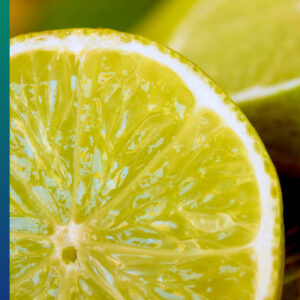
The first 5 on my list happen to be on everyone’s list. They either have the perfect characteristics or are the easiest ones to get used to.
Most essential oils have antiseptic, antitoxic, and regenerative properties, making them great for healing purposes, and cleaning reasons.
Related: How to Use Essential Oil to Get the Most Benefit from It
Lemon
Lemon oil is widely used in kitchen and bathroom cleaning products. It is antiseptic and anti-fungal, and removes grease stains excellently. It purifies the air, so it is ideal for diffusing. With the added advantage that insects hate the scent. When we go for a walk in the summer, I drip some lemon oil on my sun hat to keep the flies away.
The antiviral property strengthens our natural immune system.
Pay attention to the label if you want to use lemon essential oil internally. Not every oil is considered safe enough to put in your food. Lemon acid damages the enamel of your teeth, so if you mix it in water for taste, don’t add too many drops.
Lavender
The list of primary uses of lavender oil is huge. The best known are the soothing and antidepressant effects of lavender producing more balance in our life. I use lavender oil to sleep better. Half an hour before I go to sleep, I inhale 3 drops from my palms, after which I rub my hands on the vita flex points at the soles of my feet.
Lavender is not only great for the mind, but also for the body. It is analgesic, antihistamine and anti-infectious, and works wonderfully on allergic reactions and rashes of all kinds.
Related: 7 Organic Essential Oils to Calm the Mind plus 1 to Calm the Body
Tea Tree
Tea Tree oil is very strong, caution is advised. But precisely because it is so strong, it works wonderfully.
It is antibacterial, anti-infectious, and anti-inflammatory. My ear canal is often clogged and I drip some tea tree oil and helichrysum oil mixed with olive oil in my ears to ease the pain and itching.
Mind you, I am not a doctor, so this is not medical advice. And eventually, I have to go to the doctor for treatment. Yet, since I have been using the oil mixture, it has become a lot easier to treat.
Related: What are the Uses of Tea Tree Essential Oil and its Magnificent Benefits
Eucalyptus
I had to get used to eucalyptus oil. Once I was in a eucalyptus forest in Portugal and I have loved that air ever since.
The oil is anti-infectious and anti-inflammatory, making it great for respiratory problems. But the smell of eucalyptus essential oil is much stronger than I remember from my experience back then in Portugal. If I cough a lot I put 1 drop in my palm, divide it with my other hand, and inhale gently and deeply 3 times.
If cats often do their unwanted needs in your yard, you can mix water with eucalyptus and mist it with a spray bottle where they usually sit. Cats don’t like the smell.
Do not put too much essential oil in the water, because eucalyptus is poisonous to cats. After all, we just want them gone, not dead.
Peppermint
Peppermint essential oil is a must-buy if you are prone to bloating or stomach discomfort. Put 1 drop on the area between your thumb and the rest of your hand and lick it up.
Like eucalyptus, peppermint is strong, so you only need to use 1 to 3 drops.
You can also put some drops on your fingertips and gently massage your aching abdomen.
Peppermint is antibacterial and very suitable to add to toothpaste or food.
Frankincense
The use of frankincense is ancient and known as incense from the Bible and the Catholic Mass. I use this oil when meditating.
It is very helpful to diffuse frankincense when you are very tired or depressed.
Related: What are the Best 10 Ways to Diffuse Essential Oils?
Helichrysum
Helichrysum helps with skin problems and eczema. It would also help against tinnitus, which was the first reason for me to buy it, but unfortunately, I didn’t notice much of that.
Traditionally, it has been commonly used for asthma and bronchitis.
Clove
For me, clove has the scent of my youth. My mother often used cloves in food, especially in beef hash along with bay leaves.
We don’t eat meat anymore and I only use cloves when there are a lot of flies: I stick them in half a lemon and put it on a plate.
Clove essential oil I use as a muscle warmer and when I have muscle pain, blended with helichrysum, peppermint, and wintergreen, along with some olive oil.
What essential oils should you avoid?
Some bottles of essential oils have a black cross on an orange square, the symbol of danger. It’s obvious you can better avoid those.
Don’t buy synthetic oils. Choose organic, non-GMO, and well-tested brands. Usually, these are not the ones available in the supermarket. Go to a specialty shop instead.
Unfortunately, there is a lot of fraud in the essential oil market. Especially since they became more used and better known. Price doesn’t always mean an oil is good or bad, but a cheap one of less than 10€ or 12$ is bound to be not good.
In conclusion
You have probably noticed that the essential oils I use mostly solve problems with the respiratory system and related ailments such as coughing and eczema.
As a child, I had severe chronic bronchitis and I suffered from eczema for half my life. Those remain my weak spots, which I have, however, well under control with, among other things, the essential oils mentioned.
I am not an expert in this field and as said before this article is not medical advice. I consider essential oils to be supportive and not a substitute for medical treatment when needed.
Do you know the oils from my list? Tell us in the comment box below.

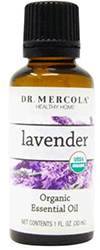
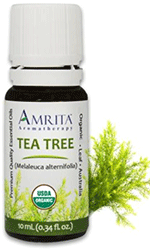
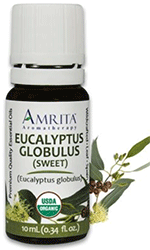
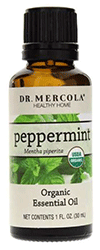
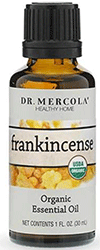
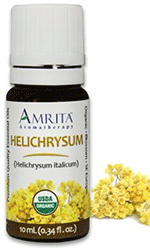
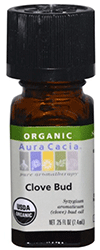
Hi Hannie, an excellent article about the use of essential oils. I love them too and use vanilla and peppermint in self-made chocolate. I love the smell and the taste.
I have to admit that lavender is not my favorite smell, but I love oranges and roses on my skin, and I use some drops in my body lotion. Well, lavender is great in the wardrobe against mots. Lemon is outstanding against mosquitos, and by the way, it also smells beautiful.
If you still have problems with your respiratory system, you might want to try out NAC, N acetylcysteine which is very good for the bronchial system. You can still order it via Amazon Germany. I don’t know about Amazon Spain. For your eczema, you could try neem oil. It helped my ears where I suffered from eczema for years. It is completely gone! 🙂
Hi Sylvia, thanks so much for your tips. At the moment my allergy is gone, thank goodness. But your tip to try neem oil is something I’ll definitely going to try. You mentioned neem oil before, that was the first time I ever heard about it.
I am not a fan of Amazon. More in particular Amazon Spain. As you know we are trying to be as sustainable as possible. A-Spain is far from sustainable. The way they package things is horrible, their personnel policy is bad, and they send each package separately, even if you save the necessary things yourself and order them in one go. So I gave up on them.
Apart from the neem oil, you taught me something else. 🙂 Or rather, brought it back from the past. I had totally forgotten lavender is great against mots. Thanks for reminding me!
Take care and stay healthy.
Lemon oil is a must when it comes to cleaning and disinfecting around the house. I haven’t tried the other essential oils, I always felt overwhelmed when I started reading about them. Thanks for going through these and explaining them so thoroughly.
Marvelous, Aaliyah, I hope you turn into the same enthusiast I am. 🙂 And you’re right, it can be overwhelming. So just start one essential oil at a time.
The app I have (as I describe in the article) is very helpful. I can search either on a kind of oil or a kind of ailment and a lot of information follows. Even that lot doesn’t have to be too much, because it’s ordered in paragraphs making it quick to look up what I need. Really helpful. The price is less than a bottle of essential oil and is very worth it.
Thanks for your comment and stay healthy.
I screenshotted the list but I’m going to skip lavender oil, not a fan of the smell by any means, never have been. How much peppermint should I add to my toothpaste? My gums have always been sensitive but lately they’re even more problematic.
Hi Riley, I am a huge fan of trying things first and then decide whether something is good for me or not. So well done, trying lavender and deciding it’s not for you. Usually, when we have a clear dislike of something it is indeed not good for us.
I would make a small batch of toothpaste because homemade toothpaste consists of all-natural ingredients without any conservatives. And such a small amount only needs a few drops of peppermint oil. I would start with 2 or 3 to see whether you smell it well enough and like it. If not, you can add more but no more than 6 drops are necessary.
For your gums, you could add tea tree oil as well. That’s anti-inflammatory and will probably help as well.
Good luck and thanks for your comment. Stay healthy.
I’ve had zero experience with essential oils but lately it seems everyone uses them. Can you recommend something for dry hair? My hair is curly but insanely dry, styling it is such a hassle. I’ve tried argan oil but it just weighed my hair down making the curls a lot less visible.
The essential oils that are perfect for dry hair are Geranium, Sandalwood, or Lavender essential oil. Put 1 or 2 drops in your hands and massage your scalp before washing your hair and showering.
What I also do at times is massaging my hair with coconut oil, let it sit for a while, and then wash it.
You could also have a look at the shampoo you use, Camilla. From my husband’s experience, I know that some shampoos dry your hair like crazy. Have a look at this article as well: Why do you have a Soap Allergy? What are Promising Solutions?
Thanks for your reply and stay healthy.